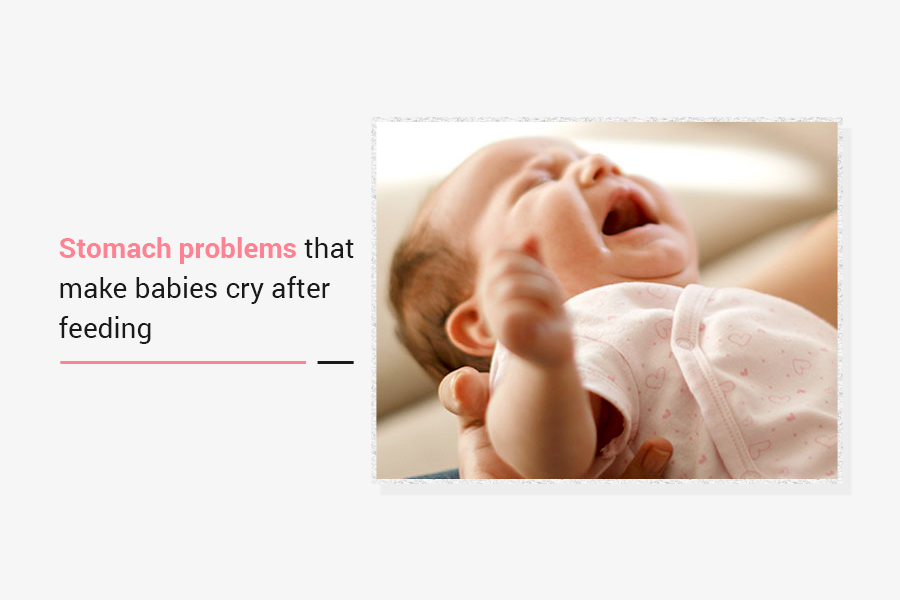
Stomach Problems That Make Babies Cry After Feeding
10 Jun 2022 | 2 min Read
Dr Shilpa Pandya
Author | 1 Articles
Crying, fussy babies lead to a lot of discomfort and stress in the parents. This happens especially when the reason behind crying is unknown. Where most new parents think that crying indicates hunger, it’s not always true. A few of the babies tend to cry even after feeding, here’s why:
Colic is one of the reasons making your baby cry after feeding. Colic may result from various factors contributing to it. Overfeeding, underfeeding, imbalanced healthy bacteria in the digestive tract, underdeveloped digestive tract, or stress. At times colic can also result from food intolerance or allergies.
Acid reflux can also lead to crying after feeding your babies. When babies experience acid reflux they tend to cry and spit out what’s fed. Its also known as gastroesophageal reflux disease (GERD). Acid reflux majorly contributes to poor weight gain in babies.
Gas resulting from swallowed air while feeding can also make your babies cry. It can also lead to pain and discomfort in the stomach. Although breastfeeding babies tend to swallow less amount of air due to their feeding position, a few babies do experience this even if they are breastfed.
Food allergies or intolerance
Babies who are on food formulas or have newly been introduced to foods can experience discomfort that led to crying and fussy behaviour after being fed. Before introducing new foods or baby formulas it is important to consult your pediatrician to avoid such situations.
If you like the article, do rate us too on the google app store by using this link
A


Related Topics for you
Suggestions offered by doctors on BabyChakra are of advisory nature i.e., for educational and informational purposes only. Content posted on, created for, or compiled by BabyChakra is not intended or designed to replace your doctor's independent judgment about any symptom, condition, or the appropriateness or risks of a procedure or treatment for a given person.
